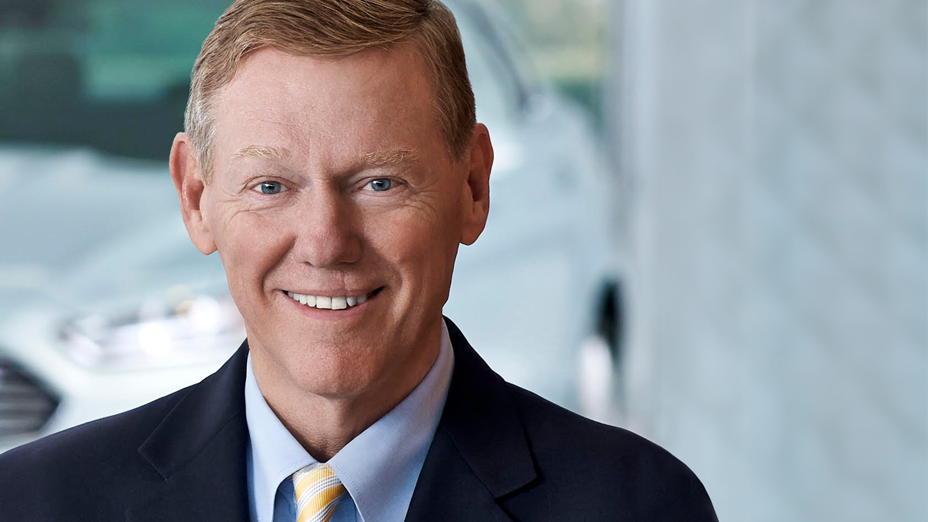From his glory days at Boeing, to Thunder Roads at Ford, Alan Mulally is still The Boss.
Mulally knew that without trust, cooperation, and teamwork, the plan would fail.
Simply put, Alan Roger Mulally is the Bruce Springsteen of CEOs - the consummate frontman. For 37 successful years, he was the Executive Vice President of Boeing and the CEO of Boeing Commercial Airplanes. He joined the Ford Motor Company in 2006 with the company in turmoil. Shortly after, he secured enough private money to keep the company afloat. He took the struggling automotive giant from the brink of disaster to soaring profitability. Along the way, he picked up awards - lots of them. Mulally was No. 3 on Fortune's list of World's Greatest Leaders, is listed as one of Barron's World's Best CEOs, and was Automotive News magazine's Industry Leader of the Year. Not bad for a kid who, at the age of 17, was inspired by President John Kennedy’s challenge to send a man to the moon.
But this isn’t a story about how a car company went from a staggering $17.6 billion loss to one of the greatest turnarounds in American business history. This is a story about a corporate leader, a keen student of leadership and communication, and how he kept his talent from jumping off a sinking ship while reinventing a corporate culture. In his own words, “Leadership is having a compelling vision, a comprehensive plan, relentless implementation, and talented people working together.” Connection played a major role in Mulally’s leadership style. He is often quoted as saying, “People want meaning. All of us want to know that we are doing great things, that we are touching a lot of people, and that what we are doing is something bigger than ourselves.”
It all began with a plan. Mulally communicated with infectious optimism, frequently quoting company founder Henry Ford. “We’re giving people the freedom of mobility” and “take advantage of opportunity” were oft-heard phrases. He was personable and made people feel important. He was single-minded in his expression of his vision and used it to evaluate everything from car design and consumer benefits to corporate decision making. True to his notions of strategy and communication, Mulally brought his vision and plan to life with 'One Ford'.
The strategy itself was made up of 4 different goals: 1. bring all employees together as a global team 2. leverage Ford’s unique knowledge and assets 3. build vehicles people wanted 4. get financing in place to pay for it all. He created 'One Team' to eliminate pre-existing silos and turf battles. He created a simplified leadership structure that aligned with his vision to get people to work together across the company as a global team. Says Mulally, “It’s about people working together for the good of all of us.”
In 2008, he had a chance to test his plan when he championed Ford’s decision to go to Congress with GM and Chrysler to call for a federal rescue. Ford didn’t need rescuing. In fact, Mulally had previously arranged a multi-billion-dollar line of credit that he secured by personally appealing to the biggest banks in America. Mulally re-established Ford’s credibility and got the ball rolling for his turnaround plan. He believed that GM and Chrysler threatened to drag the entire country into a depression and that going before Congress was “the right thing for the industry and the right thing for the United States of America.”
Mulally continued to get everyone focused on what was best for Ford. He recognized that the potential was there but he needed to activate it. He made a speech to 4,000 Ford employees and car dealers where he asked the executive team to stand and look the dealers in the eye. He then asked the executive team to tell the dealers they loved them. According to a dealer who was there, it was the defining moment when the culture at Ford began its transformation. Mulally knew that without trust, cooperation, and teamwork, the plan would fail. He believed then, as he does now, that you can’t just be there for your people. You have to love them.
From the beginning, Mulally prioritized open communication and galvanized his employees by stating “We have been going out of business for 40 years” at one of the company’s town hall meetings. The statement was profoundly accurate and had a major impact on employees. Leaders who value their people don’t view them just as a means to an end. Mulally gave his employees a voice, and would often seek out their ideas and opinions, holding weekly meetings to review his plan. He encouraged honest dialogue, forbidding anyone in his meetings to use humor at the expense of others because it undermined honesty and connection.
He also knew how to retain his top talent, discovering hidden potential amongst existing employees and growing his teams while he recharged the corporate culture at Ford with very little churn in human resources. Being united in corporate culture also paved the way for a more technologically driven company with a focus on innovation.
Part of the 'One Ford' vision was to bring suppliers, customers, and even the unions into the fold as partners. This would have the double benefit of helping convince the skeptics that the organization was really in the midst of positive change that would benefit everyone. Mulally’s plan was that Ford would communicate clearly and with great detail why the situation was now different, how things had changed, what was going to be required for the turnaround to be successful, and what the organization was willing to do so that everyone could share in the success. And he never looked back. Ford went on to post record profits with soaring stock prices.
Mulally stepped down as the President and CEO in 2014, but he’s still performing in the spotlight. He is on the Google (now Alphabet) Board of Directors, the subject of a book outlining his monumental achievements at Ford called “American Icon: Alan Mulally and the Fight to Save Ford Motor Company” and was considered to become the next Secretary of State by the Trump Administration.





.png)

.jpg)


What Did You Think?